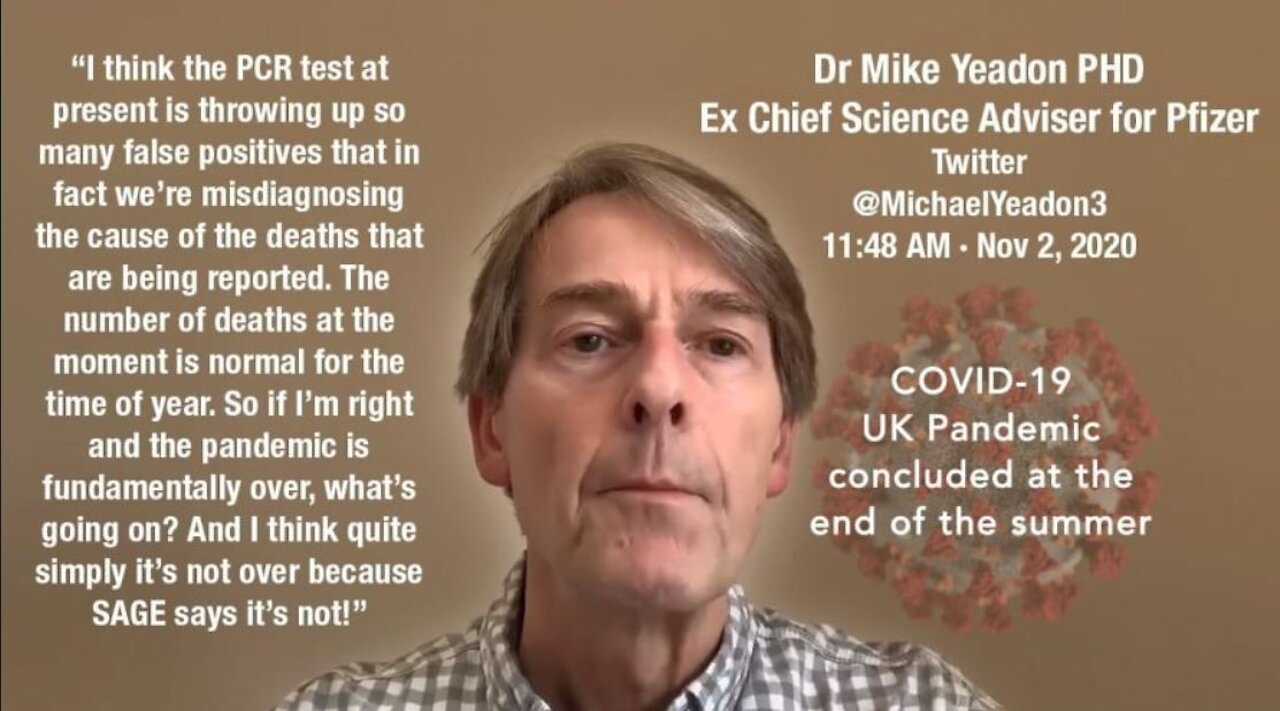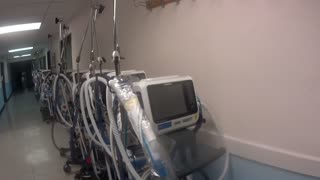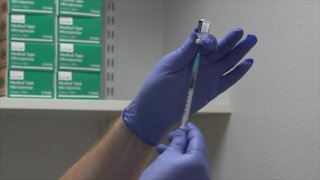Premium Only Content

Dr-Michael-Yeadon-former-Pfizer-President-WARNS COVID-19
Video source: https://benosey.com/qvids/former-president-of-pfizer-speaks-out-on-vaccine-159440011
Dr Yeadon’s (former Pfizer VP) Coronavirus Vaccine Safety Petition
POSTED ON DEC 4, 2020
Coronavirus vaccine safety concerns
On December 1, 2020, Dr. Michael Yeadon (former Vice President Respiratory & Chief Scientific Advisor, Pfizer) and Dr. Wolfgang Wodarg (lung specialist and former head of the public health department) filed an application with the EMA, the European Medicine Agency responsible for EU-wide drug approval, for the immediate suspension of all SARS CoV 2 vaccine studies, in particular the BioNtech/Pfizer study on BNT162b (EudraCT number 2020-002641-42).
Spike Protein
Dr. Wodarg and Dr. Yeadon demand that the studies – for the protection of the life and health of the volunteers – should not be continued until a study design is available that is suitable to address the significant safety concerns expressed by an increasing number of renowned scientists against the vaccine and the study design.
On the one hand, the petitioners demand that, due to the known lack of accuracy of the PCR test in a serious study, a so-called Sanger sequencing must be used. This is the only way to make reliable statements on the effectiveness of a vaccine against Covid-19. On the basis of the many different PCR tests of highly varying quality, neither the risk of disease nor a possible vaccine benefit can be determined with the necessary certainty, which is why testing the vaccine on humans is unethical per se.
Furthermore, they demand that it must be excluded, e.g. by means of animal experiments, that risks already known from previous studies, which partly originate from the nature of the corona viruses, can be realized.
The concerns are directed in particular to the following points:
The formation of so-called “non-neutralizing antibodies” can lead to an exaggerated immune reaction, especially when the test person is confronted with the real, “wild” virus after vaccination. This so-called antibody-dependent amplification, ADE, has long been known from experiments with corona vaccines in cats, for example. In the course of these studies all cats that initially tolerated the vaccination well died after catching the wild virus.
The vaccinations are expected to produce antibodies against spike proteins of SARS-CoV-2. However, spike proteins also contain syncytin-homologous proteins, which are essential for the formation of the placenta in mammals such as humans. It must be absolutely ruled out that a vaccine against SARS-CoV-2 could trigger an immune reaction against syncytin-1, as otherwise infertility of indefinite duration could result in vaccinated women.
The mRNA vaccines from BioNTech/Pfizer contain polyethylene glycol (PEG). 70% of people develop antibodies against this substance – this means that many people can develop allergic, potentially fatal reactions to the vaccination.
The much too short duration of the study does not allow a realistic estimation of the late effects. As in the narcolepsy cases after the swine flu vaccination, millions of healthy people would be exposed to an unacceptable risk if an emergency approval were to be granted and the possibility of observing the late effects of the vaccination were to follow. Nevertheless, BioNTech/Pfizer apparently submitted an application for emergency approval on December 1, 2020.
https://dryburgh.com/mike-yeadon-coronavirus-vaccine-safety-concerns-petition/
-
 2:37:05
2:37:05
Live Free or Die
1 month agoDr Lee Merritt with Dr. Bryan Ardis - Nicotine from A-Z
4.17K10 -
 3:18
3:18
AfricanNewsAgency
4 years ago $6.58 earnedCOVID-19 ICU
4.61K2 -
 1:36
1:36
WSYM
4 years agoCOVID-19 Update
7.42K1 -
 2:04
2:04
WMAR
4 years agoCOVID-19 confounds cupid
906 -
 31:01
31:01
KMGH
4 years agoDenver COVID-19 update
1.33K1 -
 1:18
1:18
KSHB
4 years agoAthletes and COVID-19
831 -
 2:26
2:26
WFTX
4 years agoCOVID-19 vaccine rollout
1.71K3 -
 1:59
1:59
KIVI
4 years agoCOVID-19 Vaccine myths
4.05K22 -
 2:36
2:36
WSYM
4 years agoLansing COVID-19 Update
293 -
 4:38
4:38
KSHB
4 years agoAnswering COVID-19 questions
3671